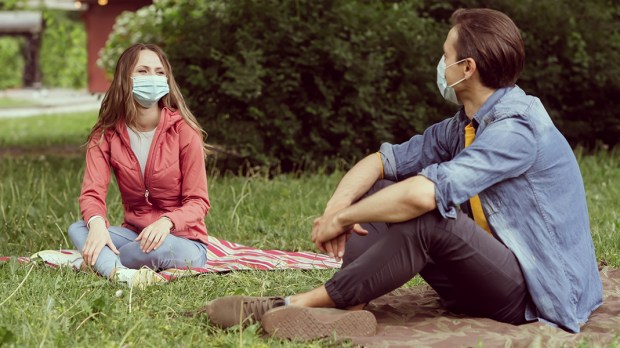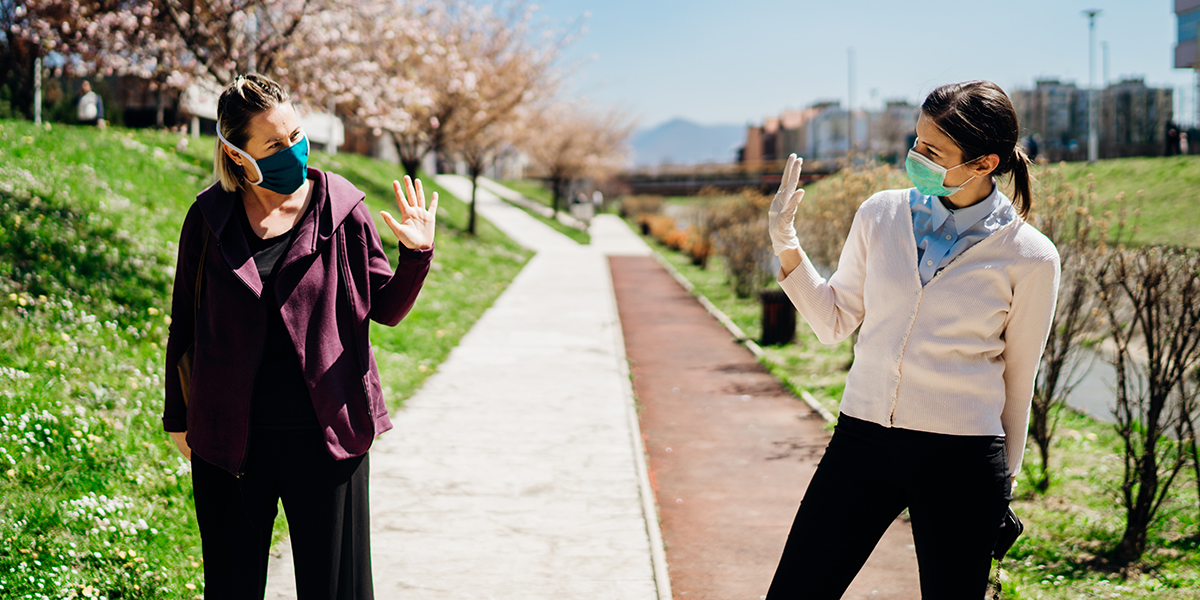“I’m struggling with the consequences of wearing masks. I can’t see people’s expressions anymore, and I can’t hug them … I don’t want us to become dehumanized.” These are some of the many concerns we might hear regarding wearing masks or having to keep physically distanced from others.
Many worry that pandemic precautions are crippling the way we relate to and communicate with others. We might ask ourselves, “How long will it be like this? Will we become asocial beings? What are we teaching our children?”
Changes often unnerve us because they make us lose our sense of control and security. We’re creatures of habit and routine, so it may be difficult to adapt to the “new normal” created by the pandemic. It’s not surprising that this change is especially hard: We’re used to living without these restrictions that force us to communicate and relate in limited and unnatural ways: on screens, by phone, with masks, etc.
If there’s one thing humanity has demonstrated throughout history, however, it’s that people are capable of adapting and evolving. That means this situation can become an opportunity for growth, innovation and development.
Practicing resilience is a key strategy during the pandemic. We can embrace the human capacity to adapt to adverse situations, from which we later emerge stronger than before.

Read more:
5 Socially-distanced ways to get out and enjoy fall this year
What makes us resilient?
An important source of resilience is love, because when we love we are able to leave our comfort zone for the sake of our loved ones. Another source of resilience is our capacity to think and reason. When we are able to understand the causes and consequences of situations that bring painful emotions, we can better support and overcome them.
These two capacities are particularly fundamental during times like these. Compassion for others has given us the motivation to soldier on in the face of the pandemic, and to continue looking for the best ways to communicate with and relate to our loved ones. Similarly, even though the news about the pandemic may be alarming, we are able to analyze and contextualize the information we receive. This rational approach helps us take reasonable and necessary measures to protect ourselves and our loved ones, while not panicking or being more concerned than we should be.
Will we ever be able to express our love through physical contact again?
Of course we will. History shows us that humanity has emerged from numerous crises that seemed insurmountable at the time. This pandemic will not be an exception.
Many countries are pouring time and resources into finding a vaccine. Along with news that reminds us to be cautious, we also hear hopeful information about upcoming treatments and solutions that will bring us back to normality.
Until that happens, we have so many alternatives at our disposal: technological means of work and communication, visits with masks and social distancing, phone calls, etc.
The great advantage of fighting to be resilient in the face of difficulties is that we develop virtues and strengths that are fundamental for interior growth: confidence, patience, temperance, etc. We can focus on these reasons to hope and be cheerful, while trusting that sooner or later, we will embrace each other again.

Read more:
A little sign that Christ is close, even in times of social distancing
Even if we can’t hug our friends right now, we can still find ways to show we care about each other. Here are 7 ways to show kindness in an age of social distancing.


